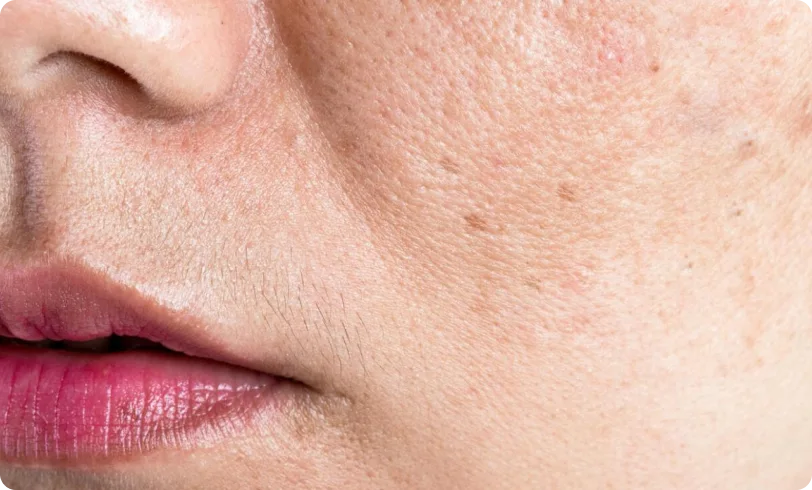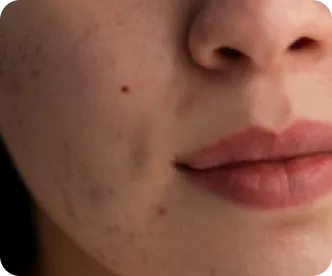Q1. What Is The Difference Between Acne Scars And Open Pores?
A1. Open pores occur due to excess sebum production that eventually leads to acne and scars.
Q2. Is It Possible To Close Open Pores Permanently?
A2. No, it is not possible to permanently close open pores as they help us enjoy a healthy skin by releasing natural oils.
Q3. Do Open Pores Cause Acne?
A3. Open pores do not directly cause acne. They are a sign of excess sebum production, which may lead to clogging of pores and acne if left untreated.
Q4. Are open pores curable?
A4. Open pores are not curable. However, by opting for advanced medico-aesthetic treatment at Oliva, you can minimise them effectively.
Q5. Can You Shrink Your Pores?
A5. Yes, medico-aesthetic treatment performed by experienced dermatologists can visibly reduce the size of your skin pores.
Q6. Is It Bad To Squeeze Nose Pores?
A6. Yes, man-handling large pores on your nose can cause hyperpigmentation and scars.
Q7. Are Open Pores Bad?
A7. Large open pores adversely affect the texture and appearance of your skin and maybe a visible sign of premature ageing. However, there are many effective treatments available to decrease their appearance.
Q8. Do Pores Get Bigger As You Age?
A8. Yes, with ageing skin pores may appear enlarged for some people. However, it varies from person to person.
Q9. What deficiency causes open pores?
A9. Pores do not result from nutritional deficiency, though vitamin A deficiency may occasionally cause enlarged pores.
Q10. Can vitamin C reduce open pores?
A10. Vitamin C acts as an antioxidant and protects the skin from the harmful effects of UV rays. It can also reduce skin inflammation and shrink open pores.
Q11. Which Food Causes Open Pores?
A11. Processed foods and foods rich in carbohydrates and sugar, and dairy products, can increase hormone levels, and stimulate excess oil production and enlarged pores.
Q12. Do Hot Showers Open Pores?
A12. Hot showers have no direct effect on the size of pores, but they can loosen dirt and debris from the pores and help unclog them. However, very frequent hot showers are not advisable.
Q13. Can Cold Water Close Pores?
A13. Cold water can reduce inflammation and sebum secretion and soothe inflamed skin. Ice cubes can also temporarily improve the appearance of pores.

